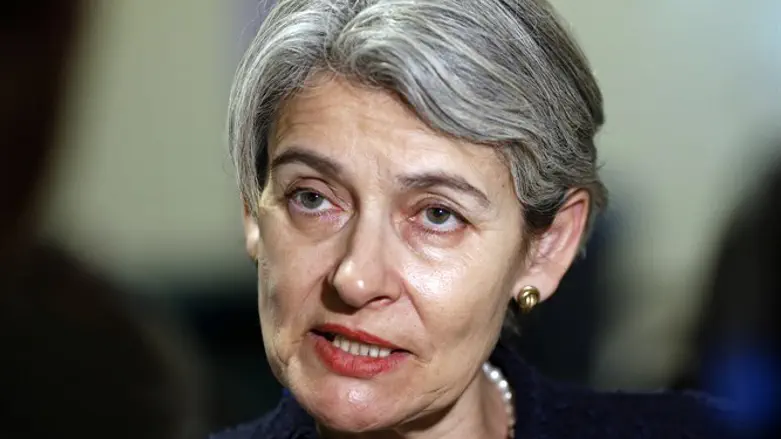
UNESCO Director General Irina Bokova on Monday pledged to defend the rightful links of all three monotheistic religions to Jerusalem.
Speaking to the World Jewish Congress’ 15th Plenary Assembly in New York, Bokova said that the “recognition, use and respect” for the names of the holy sites in the city is “paramount.”
“The Al Aqsa Mosque/Al-Haram al-Sharif, the sacred shrine of the Muslims, is also the Har Habayit – or Temple Mount – the holiest place in Judaism, whose Western Wall is revered by millions across the world, a few steps away from the Saint Sepulchre and the Mount of Olives holy to the Christians,” Bokova said.
“The outstanding universal value of Jerusalem, and the reason why it was inscribed on the World Heritage list, lies in this synthesis, which is an appeal for dialogue not confrontation,” she added.
“To deny, conceal, or erase any of the Jewish, Christian or Muslim traditions runs counter to the reasons that justified its inscription on the UNESCO World Heritage list,” Bokova added.
Her comments come after UNESCO passed a series of resolutions which attempted to erase the connection of the Jewish people to the holy places in Jerusalem and to present those places as holy to Muslims only.
The organization is supposed to vote on another resolution next month, but Israeli diplomatic efforts have resulted in significant portions of anti-Israel content being cut from the wording of the new resolution.
Bokova was among those who spoke out in October against UNESCO’s executive board decision to adopt a resolution that disregards the Jewish connection to the Temple Mount and the Western Wall.
The resolution was supported by 24 states, including Russia and China. Six countries opposed and 26 abstained.
The resolution maintains that the Western Wall and Temple Mount will be referred to by their Arabic names and the Hebrew terms for the sites will only appear in quotation marks in UN references.
In her address to the World Jewish Congress on Monday, Bokova also launched a new policy guide for educators on teaching about the Holocaust, genocides and mass atrocities. She described the guide as an important tool to promote education and the history of genocide as a tool for peace.
“With this innovative and one of a kind policy guide, UNESCO speaks to the next generation of leaders, of teachers, of citizens around the world. We must empower future generations with the lessons from the Holocaust, equip our children and grandchildren with the tools they need to vanquish intolerance and hate, bigotry and anti-Semitism, racism and prejudice.”
“Education about the Holocaust and preventing genocide” is the first step in a series of projects conducted in partnership with the United States Holocaust Memorial Museum and with the support of the Canadian Ministry of Foreign Affairs,” said Bokova.